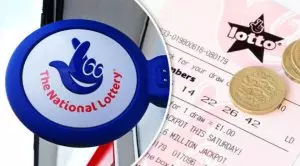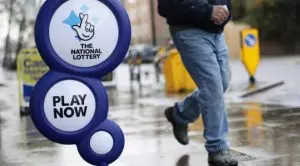 The UK Gambling Commission (UKGC) has specially recruited investment bankers from the multinational investment bank Rothschild & Co to choose the new operator of the British National Lottery, as revealed by the Telegraph.
The UK Gambling Commission (UKGC) has specially recruited investment bankers from the multinational investment bank Rothschild & Co to choose the new operator of the British National Lottery, as revealed by the Telegraph.
Currently, the country’s National Lottery has been run by the Camelot Group, a company owned an managed by a pension fund based in Canada, since 1994 when it was first rolled out. Camelot has been holding a monopoly on the National Lottery’s services for two decades and a half, but its operating licence is set to expire in 2023, so a strong competition is expected to emerge for the rights to run the operations. Richard Desmond, the previous owner of Channel 5 and Express, has already shared that he was interested in taking over the National Lottery and has called for the operator’s services to be brought back to British ownership.
Gambling Commission appoints Rothschild & Co to engage parties interested in fourth National Lottery licence competition. Read more here: https://t.co/JmMW6nzymb pic.twitter.com/1kwbFtqyRl
— Gambling Commission (@GamRegGB) July 23, 2019
At the time when previous offers for the operational rights have been made, Camelot Group has managed to beat the competition of Sir Richard Branson and Sugal & Damani, a lottery and diamond entity controlled by an Indian tribe. Now, the law firm Hogan Lovells, as well as the accountancy firms Deloitte and EY joined the Rothschild Bank as the main decision-makers.
As explained by the UKGC, the monopoly on the National Lottery should remain in place rather than be divided among several operators, as it has previously been discussed. The last time when the UK National Lottery was placed for an offer in 2009. as mentioned above, the current monopoly on its operations is to be held by the Camelot Group until 2023.
A tender process is officially set to start in 2020.
Nigel Railton Says Draw-Based Games Are “Healthy” Again, Despite Falling Ticket Sales
 Lately, the National Lottery has been suffering the negative consequences of declining ticket sales.
Lately, the National Lottery has been suffering the negative consequences of declining ticket sales.
Back in November 2017, Nigel Railton took over the operator, so he implemented a series of changes which included the return of the main draw to live television. As Mr Railton explained in June this year, draw-based games such as Lotto were now “back in good health”.
The last few years have also seen some controversy associated with the National Lottery, too. In August 2018, Camelot Group suffered a massive £1.2-million fine imposed by the British gambling regulator due to a series of failures, including incorrectly sending non-winning messages to lottery players. After the competent authorities rejected the idea of a not-for-profit lottery, the offer of Sir Richard Branson’s Virgin Group was defeated and Camelot Group became the operator of the National Lottery in 1994.
Branson, however, has not despaired. A few years later, in 2001, he returned with a rival called The People’s Lottery but his offer was once again turned down by the competent authorities. In 2010, Camelot Group was acquired by the Ontario Teachers’ Pension Plan in a £400-million deal to join the entity’s investments, which also include the Irish lottery and London City Airport.
- Author


